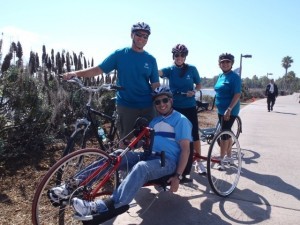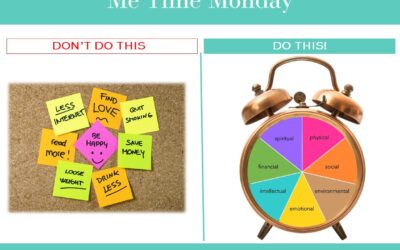 Today is Veterans Day when we honor those who have served our country at home and abroad to ensure our freedom. But it is not just our service men and women who make the sacrifices for freedom. I would also like to honor the 10 million family caregivers of our nation’s veterans and the 7 million caregivers who are veterans themselves.
Today is Veterans Day when we honor those who have served our country at home and abroad to ensure our freedom. But it is not just our service men and women who make the sacrifices for freedom. I would also like to honor the 10 million family caregivers of our nation’s veterans and the 7 million caregivers who are veterans themselves.
In a landmark study from the National Alliance for Caregiving and underwritten by UnitedHealth Foundation, it showed:
- Veterans’ caregivers bear a higher burden than most, helping to manage emotional and physical conditions often for 10 years or longer. In fact, compared to caregivers nationally, caregivers of veterans are twice as likely to be in their caregiving role for more than 10 years (30 percent vs. 15 percent).
- Caregivers of veterans are overwhelmingly women (96 percent) who sacrifice their own health, work and family life. These veteran’s caregivers have twice the levels of stress (88 percent) or depression (63 percent) than typical caregivers.
- The study revealed many veterans’ caregivers are younger – spouses of those having served in Operation Iraqi Freedom (OIF)/Operation Enduring Freedom (OEF) but also revealed more baby boomer parents are caring for their injured adult children. Many of these veterans are suffering with the following: 60 percent have post-traumatic stress disorder (PTSD), 70 percent with mental health conditions such as depression or anxiety, and 29 percent with traumatic brain injury (TBI).
I recently had the privilege of speaking to two caregivers of veterans whose stories highlight the sacrifice and service which is the true hallmark of our military families.
From Newlywed to Nurse
Libby met her husband, Jim, in an online dating site for boomer and seniors. She was in her late 50s and was thrilled to find the love of her life in this enigmatic, heroic man who was a Vietnam War veteran. Their whirlwind romance led to marriage but Libby’s dreams of riding off into the sunset together were about to take a detour. In Libby’s words, “Within 14 months I went from newlywed to nurse.”
Jim felt he had long suffered the consequences of the Agent Orange he had come into contact with in South Vietnam. Recently, he had a complicated hernia operation and in addition to his rapid weight loss, he was eventually diagnosed with prostate cancer. Linda began her long journey of caring for her ailing husband.
As days turned into weeks turned into months, Libby realized she was neglecting her own health and her emotional state was fragile. She had stopped going to her gym class, stopped having lunch with girlfriends and ultimately she had to leave her job as head of a major company’s customer service department because Jim needed constant care.
Proud Parents Face a Retirement of Caregiving
Rosie and her husband Alain had both recently retired and were busy planning how they would be spending their golden years. They had it all mapped out – a road trip in an RV Alain had his heart set on and participating in tandem bike races around the country. Then the call came that would change everything.
Their 25-year-old son Alan Jr., known to family and friends as “Doc” was serving in Iraq. They received a call advising them their son had been shot in the abdomen while helping to keep a supply road open between Baghdad and Kuwait. They were told he lay bleeding, slipping in and out of consciousness on the open battlefield for more than three hours before they finally extracted him, got him stabilized and put on a Medivac to Germany. Eventually he was transported to Walter Reed Army Medical Center in Bethesda, Maryland. When Rosie and Alain arrived at the hospital, their son had survived more than 30 surgeries but had suffered a stroke which left him with traumatic brain injury (TBI). The doctors informed Rosie and Alain Doc would never regain his ability to walk, dress himself, bathe himself, have the ability to talk clearly, or be in any way independent.
After Rosie and Alain brought Doc home they needed to create a new normal. The den in their family home was transformed into Doc’s room equipped with a special patient lift to easily get Doc from bed to wheelchair or the bath. Every day, Rosie lovingly bathes her 25-year-old son – as she once did when he was only 25 months old. Rosie teared up when Doc proudly showed me his Purple Heart. Whatever hopes and dreams she had for her son’s future are now captured in the pride she has in her son and his service to his country.
Epilogues of Inspiration
Libby told me she pulled herself out of the downward spiral of depression so common for caregivers. She found solace two ways: by creating an online newsletter which has now become a Lotsa Helping Hands community to update family and friends about Jim’s progress in beating his cancer and in her progress in getting her life back. She also took a terrific caregiver self-care education training course through the local VA office called Powerful Tools for Caregivers.
 You might think Rosie and Alain’s plans for their retirement were destroyed but in reality they were just delayed. “I decided we were going to go from the bedside to outside,” Rosie tells me. This active, athletic family, including Doc, participates in events around the country at least once a month including the Disabled Sports USA activities which include adaptive surfing, river rafting, snorkeling and rock climbing. They also attend the Challenge Aspen annual adaptive skiing event in Snowmass, Colorado.
You might think Rosie and Alain’s plans for their retirement were destroyed but in reality they were just delayed. “I decided we were going to go from the bedside to outside,” Rosie tells me. This active, athletic family, including Doc, participates in events around the country at least once a month including the Disabled Sports USA activities which include adaptive surfing, river rafting, snorkeling and rock climbing. They also attend the Challenge Aspen annual adaptive skiing event in Snowmass, Colorado.
Rosie started Help Our Wounded, a nonprofit organization that provides support and direct assistance for veteran’s families in need. The volunteer help are mentors who know how to navigate the VA and military benefits system – those caregivers who have been through the experience of caring for a veteran. In addition, she and Doc star in a public service announcement for the Wounded Warrior Project to show other veterans and their caregivers there can be hope and healing.
God bless our troops, our veterans and their family caregivers. And, on this Veterans Day (and every day) – my thanks for your service, your courage, your sacrifices and your caring.
Note: This week’s blog is dedicated to the veterans in my life – my step-father who is a Korean War Veteran and proud Navy man, my late grandfather who was an Army WWII veteran and my brother’s good friend, Major Tai Le, who was assigned to the Pentagon in the JAG office after his second tour in Iraq but who is back in Iraq on his third tour of duty.




0 Comments